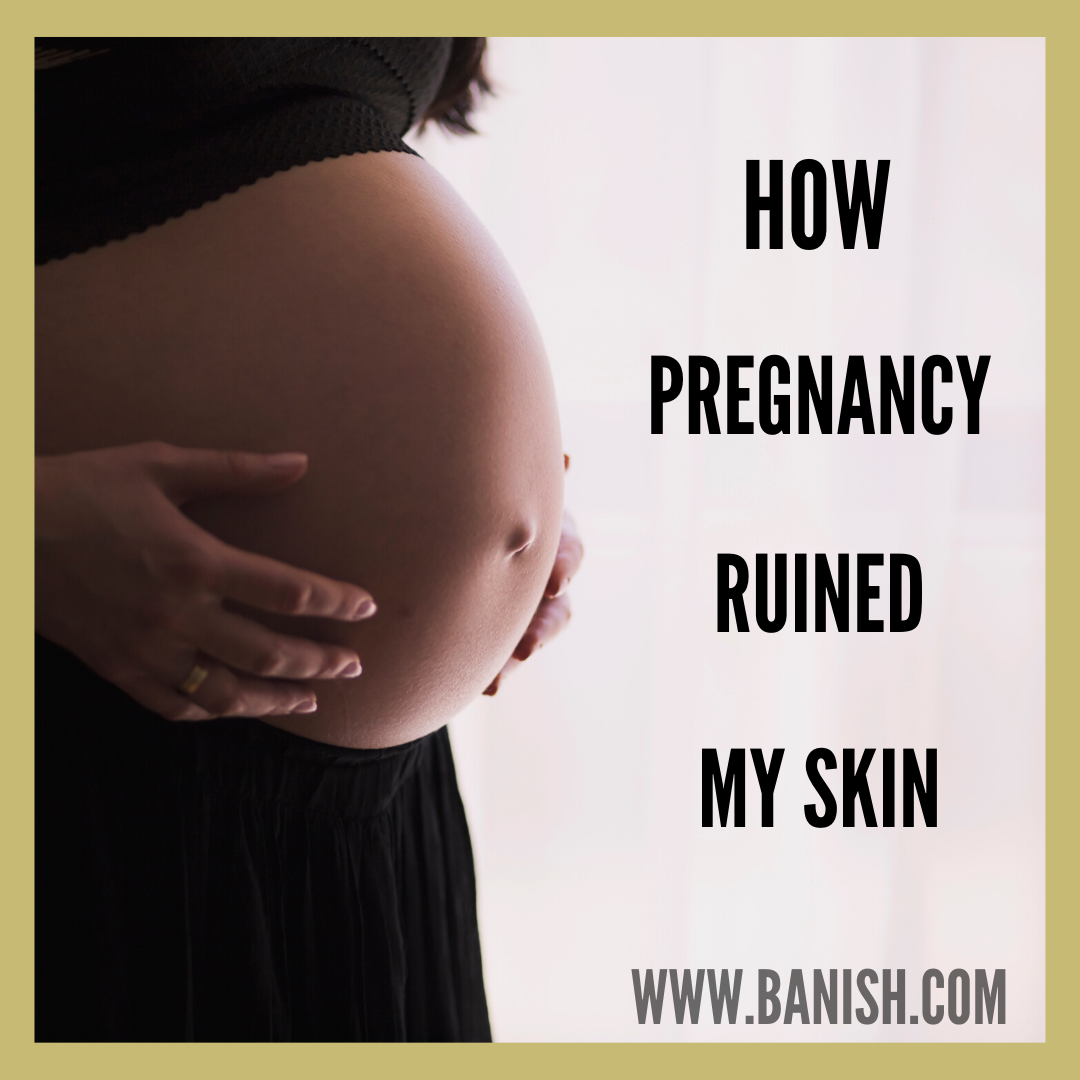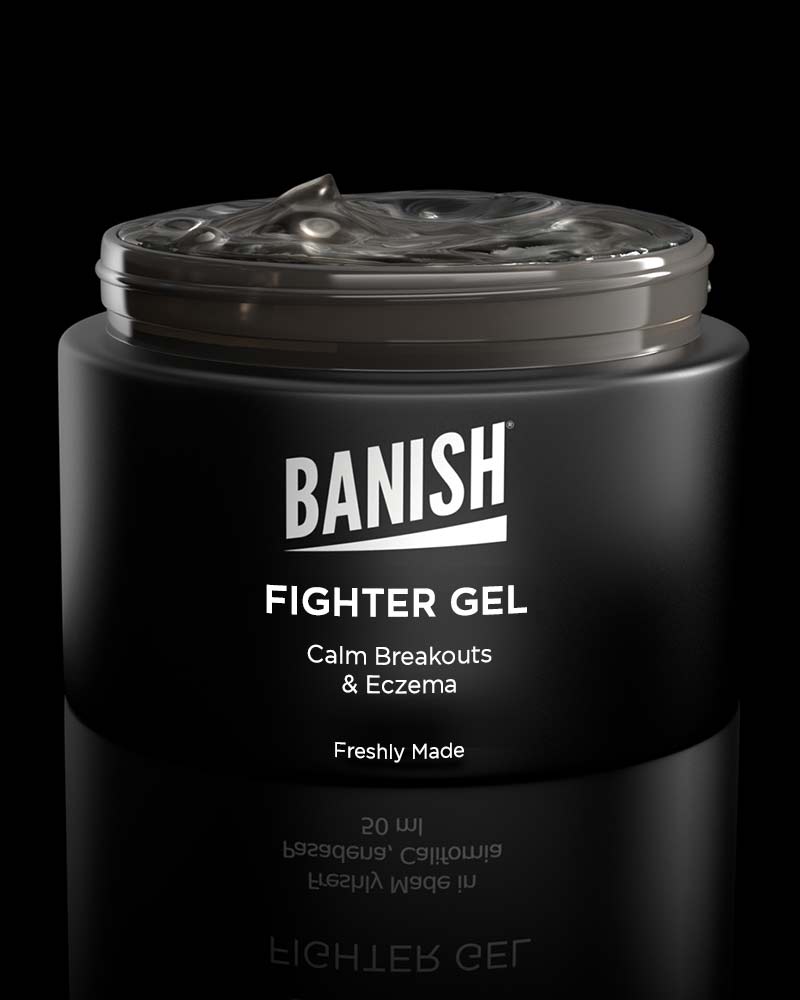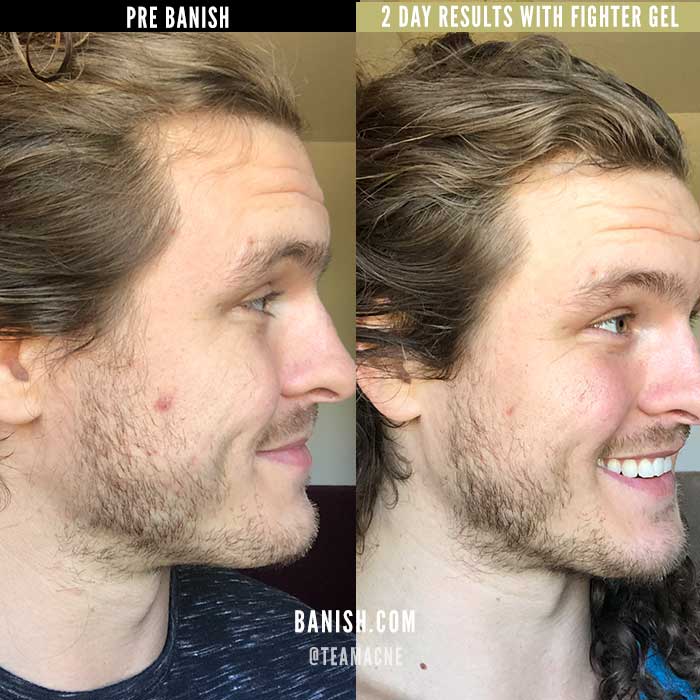What is pregnancy acne? And what are its effects on every girl’s skin? Why does pregnancy also cause acne and how do we treat acne scars during pregnancy?
Here is Angel’s acne story/experience…
During Angel’s youth, she never had any issues with her face. People would often tell her that she has amazingly beautiful skin. She did not have to worry about any acne flares during period. Her skin used to be smooth and perfect for other people to see or think she was wearing makeup even though she wasn’t. She loves her skin.
Until such time came when she became pregnant in the year 2008 during her early 20s. Her pregnancy caused her to break out at the 3rd trimester. She had acne on her cheeks, forehead, chin, nose, chest, back and arms. She tried almost every skin care routine – from scrubs to toners… yet none of them worked.
She has to cover her face with makeup to conceal all the acne appearing on her skin. She prayed and hoped that the acne would never come back after giving birth to her baby. To her relief, she woke up to a clear face, neck, back and arms. She no longer had to worry about acne and went back to using regular makeup and scrubbing her face with St. IVES Apricot Scrub. She was back to loving her skin again --- her pregnancy acne disappeared.
HOW DOES PREGNANCY CAUSE ACNE?
Pregnancy acne is considered as a natural, cosmetic condition and usually subsides when the hormone levels return to normal. This type of acne is common to expectant mothers due to their increased hormonal levels (i.e progesterone). At this stage, hormones can fluctuate wildly and possibly contribute to acne development. Colossal changes can also take place within your body during pregnancy.
There are expectant mothers who suffer from acne while they are pregnant as this is where pregnancy hormones get wild, even if they had clear skin beforehand. But upon reaching the due date, most pregnant women will notice their skin or acne improving.
One of the causes of pregnancy acne is the increased levels of hormones during the 1st trimester. The high levels of hormones increase the skin’s production of natural oils. Predicting if you’ll get pregnancy acne can be difficult unless you have a history of having acne flare ups at the start of your monthly period, making you more likely to be at a higher risk.
Another thing that causes pregnancy acne is that your body, as an expectant mother, retains more fluids which can contain toxins leading to zits or acne pimples.
Managing pregnancy acne can be a bit tricky as there are many prescription and OTC treatments which come with a high risk of developing birth effects. Expectant mothers are advised to avoid medication which gives you a remote chance of harming your unborn child. Pregnancy acne can be challenging to deal with. Pregnancy is a hormonal process that can cause acne flare ups. There are some who may notice improvements in their skin while there are some who may not. An increase in androgen levels may increase your sebum production. It’s hard to remove all the toxins out of our body during pregnancy stage, which too is a possible cause of acne breakouts.
WHAT SKINCARE IS SAFE/UNSAFE DURING PREGNANCY?
There are skin care products that are safe and/or unsafe to use in preventing or treating pregnancy acne, especially if you’re expecting.
UNSAFE SKIN CARE
Experts recommend avoiding these medications/acne treatments when you’re pregnant:
1. Oral isotretinoin
This medication poses risks in childbirth/birth defects among infants.
2. Topical retinoids
Just like any other topical treatments, this medication can put you at risk of having miscarriage or your baby in developing birth defects like cleft palate, congenital heart defects, ear problems, eye problems, etc.
3. Hormonal therapies
4. Oral tetracyclines
This causes discoloration of baby’s teeth when taken after 4 months of pregnancy and affects baby’s bone growth.
5. Retinol
This is also known as Retin A/retinyl palmitate, a derivative of Vitamin A. Taking this potent acne medication can cause malformations of the baby's head, heart, brain and spinal cord.
6. Benzoyl peroxide and salicylic acid
These common acne fighting ingredients are best avoided while you’re expecting a baby as they can bring about negative effects or consequences when taken orally in large quantities.
7. Hydroquinone
Expectant women or mothers may be tempted to use an OTC treatment which may contain this harmful substance or ingredient and these are anti-pigment agents are contraindicated for those who are waiting for their unborn child to come out. The high absorption rate (about 35 to 45%) of this ingredient can be troublesome.
8. Parabens
These are common preservatives found in cosmetic products like makeup and they offer two distinct concerns: parabens are known as hormone disruptors and easily absorbed into the skin. Pre-natal exposure to BPA has been linked to a host of pregnancy and childhood issues like miscarriage, low birth weight, obesity, impaired fetal growth and behavioral problems, according to a 2016 study in Journal of Chemistry.
9. Aluminum Chloride
The use of this main ingredient has been disparaged for 40 years. High concentrated use of this ingredient may be harmful as well for pregnant women when treating their acne.
10. Essential Oils
Not all natural things are good for us and for expectant mothers. Pregnant women often want to switch their beauty products. We know that essential oils are a go to especially when we’re looking for natural benefits. Not all oils are safe to use for pregnancy acne: Jasmine and sage – trigger contractions; sage and rosemary – cause bleeding; rosemary – increases blood pressure.
SAFE SKIN CARE
Here are the following skin care treatments/products that are safe to use for treating pregnancy acne:
1. Fighter Gel
This is truly the newest addition to Banish's miracle, acne-fighting products. It has a cooling effect and will definitely help if you have a newly-formed acne. Use it twice a day on cleansed skin and see for yourself how it would make the inflammation subside in just a few days.
2. Pumpkin Enzyme Masque
If you are a fan of AHAs or want to slough off dead skin cells, this one's for you. Just be careful though if you have sensitive skin. If you have this skin type, you can still use it but as a spot treatment only.
3. Mineral makeup
This is one of the best choices of skin care products to use when you’re pregnant as it does not contain any harmful ingredient which may irritate your skin.
4. Moisturizer
Go for those skin moisturizing products which have these ingredients: glycerin, hyaluronic acid or shea butter.
Note that although these are generally safe, it is always best if you consult your doctor first to ensure that you are not sensitive or allergic to any of the ingredients. Your safety and your baby's safety should always come first.
HOW TO TREAT ACNE SCARS DURING PREGNANCY
Needless to say, we find acne as a bother while pregnant or expecting. But pregnancy acne can be treated with acne and medication. It is not a special form of acne. Most women often have difficulty dealing with pregnancy acne.
Here are ways or tips on how we can treat pregnancy acne:
1. Wash affected areas with a gentle cleanser
2. Shampoo regularly
3. Don’t pick or squeeze blemishes
4. Avoid irritants
5. Watch what touches your skin
6. Moisturizes
7. Read or check labels before you buy skin care products
8. Increase dietary intake of Vitamin A (but stay away from extra Vitamin A supplements)
9. Eat healthy
10. Drink lots of water
11. Talk to your skin specialist/dermatologist
TIPS ON HOW TO MANAGE PREGNANCY ACNE
Managing pregnancy acne comes with quite a lot of changes in a woman’s body, most especially hormonal changes as it is one of the common acne triggers. Treating acne when you’re expecting a child is not as easy as one may think.
Yes, you may treat pregnancy acne but there are some acne treatments to avoid such as Accutane and Retin A (these are completely off limits when you’re an expectant mother). It’s best to avoid these treatments until after you’re done breastfeeding your baby since they can be absorbed both through skin and breast milk which can possibly run through your baby’s bloodstream as well. Other than Accutane and Retin A, it’s also best to stay away from BHA or salicylic acid, should you choose to take that treatment.
When you want to deal or treat pregnancy acne, the best alternative to that would be natural remedies over chemically charged acne treatments.
Here are some tips on how you can manage or deal with pregnancy acne:
-
Keep your Face Clean - keeping your face as clean as possible is a great place to start when it comes to fighting acne. Wash your pillowcases frequently and avoid touching your face. Only wear makeup when you feel it is completely necessary.
-
Drink Water - Water flushes out your system and gets rid of unwanted toxins. It helps keep your bloodstream clean as well as your face! Make sure to drink plenty of water. At least 8 to 12 glasses will do.
-
Moisturize -Do not allow your face to get dry and oily. By keeping your face lightly moisturized you will do wonders for combating acne.
-
Follow A Good Skincare Regimen – Being consistent and sticking or following a good skin care regimen is a must when dealing with pregnancy acne.
-
Don’t Pick Those Blemishes! – A lot of times you may be tempted to pick your skin or blemishes, but doing so when you’re expecting a child is a big No-No as it could cause bacteria to spread further.
-
Eliminate Dairy – Though this may not be always the case for everyone, most especially to pregnant women, eliminating dairy is also a must when you want to help keep your acne at bay. If you’re one of those breaking out from dairy while you’re carrying a life inside of you, then it’s best to eliminate dairy or find a substitute such as other calcium-rich foods and beverages like fortified milk alternative and consuming foods like almonds, broccoli and even salmon with bones.
- Don’t Stress! – We know, we know, we know, we can’t help but feel stressed out with a lot of things especially when they are out of control. But stressing out while you’re expecting a child can cause your acne flare ups to be worse than it already is. Feeling frazzled causes you to lack sleep, consume junk foods and quit your skin care routine, which can possibly increase your risk of suffering from acne breakouts while you’re pregnant.
In dealing with pregnancy acne, it’s best to use stress-reducing techniques (e.g. meditation and exercise and stick to your typical eating, sleeping pattern and skin care routine to control or reduce stress as much as possible.
How do you deal with pregnancy acne? Share your thoughts by commenting down below.
























Leave a comment
All comments are moderated before being published.
This site is protected by hCaptcha and the hCaptcha Privacy Policy and Terms of Service apply.